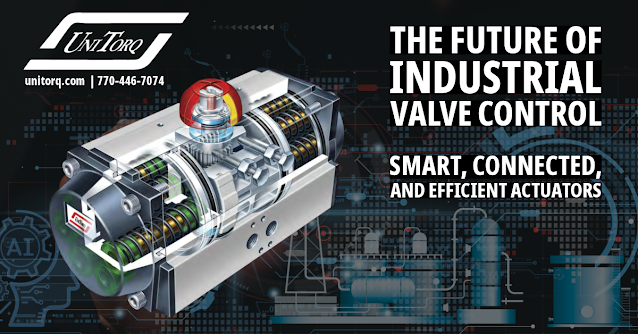Artificial Intelligence Integration
Integrating AI into valve actuators will enable predictive maintenance and intelligent decision-making. AI algorithms can predict potential failures and optimize maintenance schedules by analyzing real-time data from sensors and historical performance records. Thus, they will minimize downtime, reduce maintenance costs, and extend the lifespan of valve actuators. Additionally, AI-powered actuators can self-learn and adapt to changing process conditions, ensuring optimal performance and energy efficiency.
Wireless Communication Advancements
Adopting advanced wireless communication technologies, such as 5G and IoT (Internet of Things), will revolutionize valve actuator connectivity. Wireless communication will enable remote monitoring, control, and diagnostics of valve actuators, eliminating the need for physical site visits, improving operational efficiency, reducing response times, and enhancing safety in hazardous environments. Wireless networks will also facilitate seamless integration with other industrial devices and control systems, enabling real-time data exchange and collaborative decision-making.
Industrial Digitalization
The increasing digitalization of industrial processes will profoundly impact valve actuators. Digital twins, virtual replicas of physical assets, will become more prevalent. These digital models will simulate the behavior of valve actuators under various conditions, enabling predictive maintenance, performance optimization, and virtual commissioning. Cloud-based platforms allow centralized data storage, analysis, and remote access, facilitating data-driven decision-making and cross-functional collaboration.
Cybersecurity Enhancements
As valve actuators become more connected and digitized, cybersecurity will be a critical consideration. Manufacturers will invest in robust security measures, such as encryption, secure communication protocols, and user authentication, to protect valve actuators from cyber threats. Regular security updates and patches will be essential to address evolving vulnerabilities and maintain the integrity of industrial control systems.
Modular and Interoperable Designs
Valve actuator designs will evolve towards modular and interoperable architectures. Modular designs allow easy customization, upgradability, and maintenance, enabling end-users to adapt actuators to specific application requirements. Interoperability will ensure seamless integration with various industrial protocols and control systems, promoting flexibility and reducing integration costs.
Sustainability and Energy Efficiency
Sustainability and energy efficiency will be critical drivers in the development of valve actuators. Manufacturers will focus on designing actuators with reduced power consumption, improved materials, and optimized performance. Advanced control algorithms and energy recovery systems will further enhance energy efficiency. Additionally, adopting eco-friendly materials and manufacturing processes will reduce valve actuators' environmental impact.
The next five years will witness significant advancements in pneumatic and electric industrial valve actuators driven by AI, wireless communications, and industrial digitalization. These technologies will enable predictive maintenance, remote monitoring, and intelligent decision-making, improving efficiency, reliability, and connectivity. As the industry embraces these advancements, valve actuators will become more innovative, secure, and sustainable, revolutionizing how industrial processes are controlled and optimized.
UniTorq Actuators and Controls2150 Boggs Road, Suite 410
Duluth, GA 30096
https://unitorq.com
Phone: (770) 446-7074
Fax: (770) 447-1825
